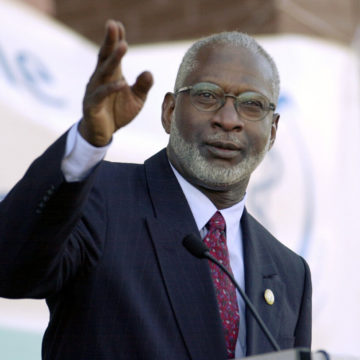The Burden of Obesity Is Not Carried Equally
Since leaving my post in 2002 as the U.S. Surgeon General, the nation’s leading public health role, America has made great strides in battling public health crises. From reducing tobacco use and improving maternal and child health, to most recently advancing vaccine technology to fight the COVID-19 pandemic. Yet, another epidemic has gained strength, debilitating and killing millions of people on its deadly upward trajectory. The chronic disease of obesity is a misunderstood condition impacting millions of Americans from every demographic group living in every corner of the country. Unfortunately, obesity and comorbid diseases disproportionately impact communities of color in nearly incalculable ways.
In the early 2000s, the national adult obesity rate was 30.5% and we had made progress on achieving many health goals related to heart disease, type 2 diabetes, cancer, and multiple other chronic health challenges. Back then, my office released “The Surgeon General’s Call to Action to Prevent and Decrease Overweight and Obesity,” which underscored the increasing severity of obesity’s impact on our collective health and outlined a vision for the future. Today, the adult obesity rate has climbed to 42.4% and is projected to reach nearly 50% by 2030.
Disparities in obesity rates between racial and ethnic groups are stark. The latest data show that non-Hispanic Black adults have the highest age-adjusted prevalence of obesity in the country at 49.6%, followed by Hispanic adults at 44.8%, and non-Hispanic white adults at 42.2%. Obesity is also a significant health challenge among American Indians and Alaskan Natives, with adults in those communities 50% more likely to have obesity than white adults. Furthermore, a projection of obesity rates found that “severe obesity” will become the most common BMI category among non-Hispanic Black adults (31.7%) — as well as among women (27.6%) and low-income adults (31.7%) — by 2030.
